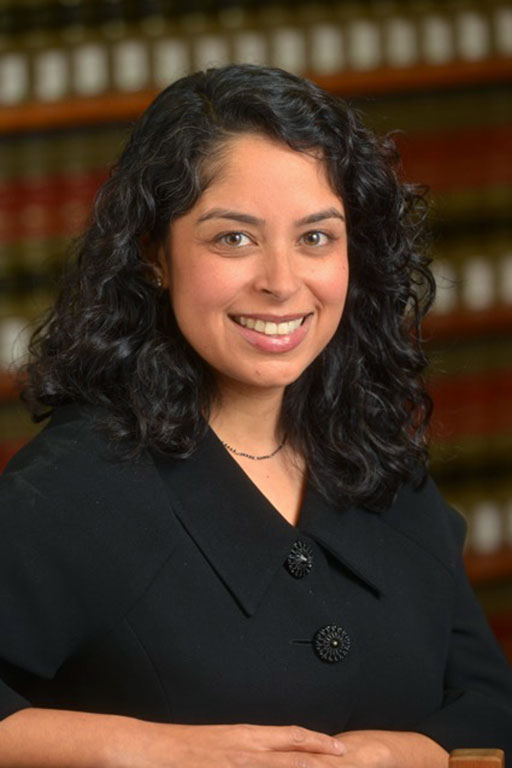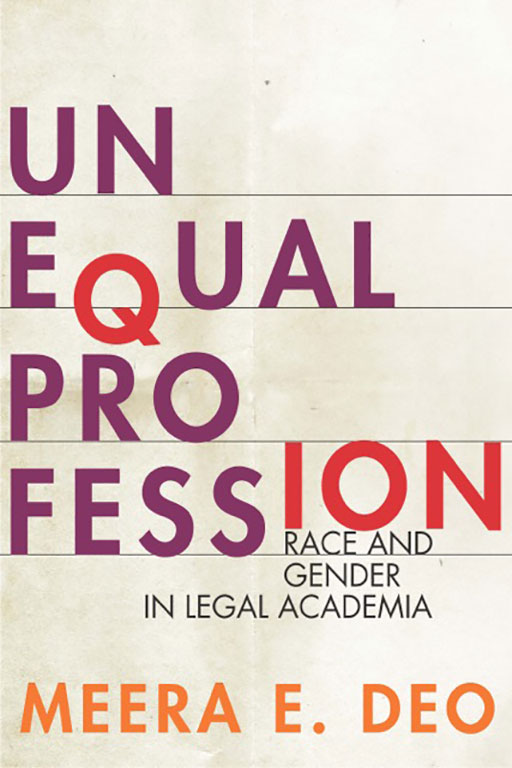Confrontational students and biases in course evaluations have devastating effects on the tenure and promotion process and outcomes for women of color. That’s according to a new book, Unequal Profession: Race and Gender in Legal Academia by Meera E. Deo, Director of the Law School Survey of Student Engagement (LSSSE), one of the projects housed at the Center for Postsecondary Research (CPR) at the School of Education.
Published this month by Stanford University Press, Deo’s findings are grim: colleagues who “mansplain” and silence marginalized faculty contribute to a higher rate of attrition. The data also reveal interesting parallels between hiring and leadership for women of color faculty, as many do not pursue faculty or administrative positions primarily because they are told (directly or indirectly) that they do not belong.
To help solve these issues, Deo’s findings outline individual strategies for success that have worked for many participants in the study and can be adapted for others. Necessary structural solutions—from thinking “outside the box” to purposefully working against implicit bias—are also emphasized in the book.
“Although there are more women of color law professors today than in decades past, the experiences of racial bias and gender discrimination persist,” said Deo. “This book seeks to assure marginalized faculty that they are not alone, to encourage aspiring faculty to better understand the academic environment, and to provide strategies and solutions to improve legal academia as a whole.”

The data on law faculty reveal interesting parallels with the experiences of traditionally underrepresented law students. Previous LSSSE publications have highlighted ongoing racial and ethnic disparities, with Black and Latino students being most likely to carry the most debt and being least likely to expect to work in their preferred settings after graduation. Gender disparities among law students include a reluctance among women to participate in class as compared to men, in spite of increasing numbers of women entering law schools today.
CPR Director Thomas Nelson Laird noted, “Professor Deo’s book, coupled with LSSSE findings, suggests critical areas in need of improvement in legal education.”
Unequal Profession draws from the first formal empirical study of the law faculty experience, sharing national survey and interview data from women and men of different racial and ethnic backgrounds from Assistant Professor to Dean Emeritus. According to Association of American Law Schools (AALS), only 7% of legal academics are women of color (while 62% are men and at least 71% are white). No previous formal empirical study has explored this ongoing disparity or gathered qualitative data on law faculty. Deo uses quantitative and qualitative data to detail intersectional race and gender challenges facing traditionally underrepresented faculty.
Unequal Profession is available on Amazon, Barnes & Noble, and Apple iBooks. Readers can find more information and also purchase the book from the Stanford University Press website.
Meera E. Deo, JD, PhD is Director of LSSSE, Professor of Law at Thomas Jefferson School of Law, and Visiting Professor at UC Davis School of Law. She has held previous appointments at the law schools of UC Irvine, UCLA, and UC Berkeley. Her scholarship merges jurisprudence with empirical methods to interrogate institutional diversity, affirmative action, and racial representation. The National Science Foundation (NSF), the Paul & Daisy Soros Fellowship, and numerous additional grants and awards have supported her research. Professor Deo has served as a Senate-appointed member of the California Commission on Access to Justice is the current Chair of the Association of American Law Schools (AALS) Section on Law and the Social Sciences.


